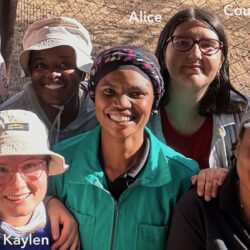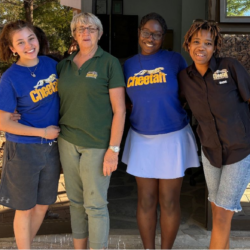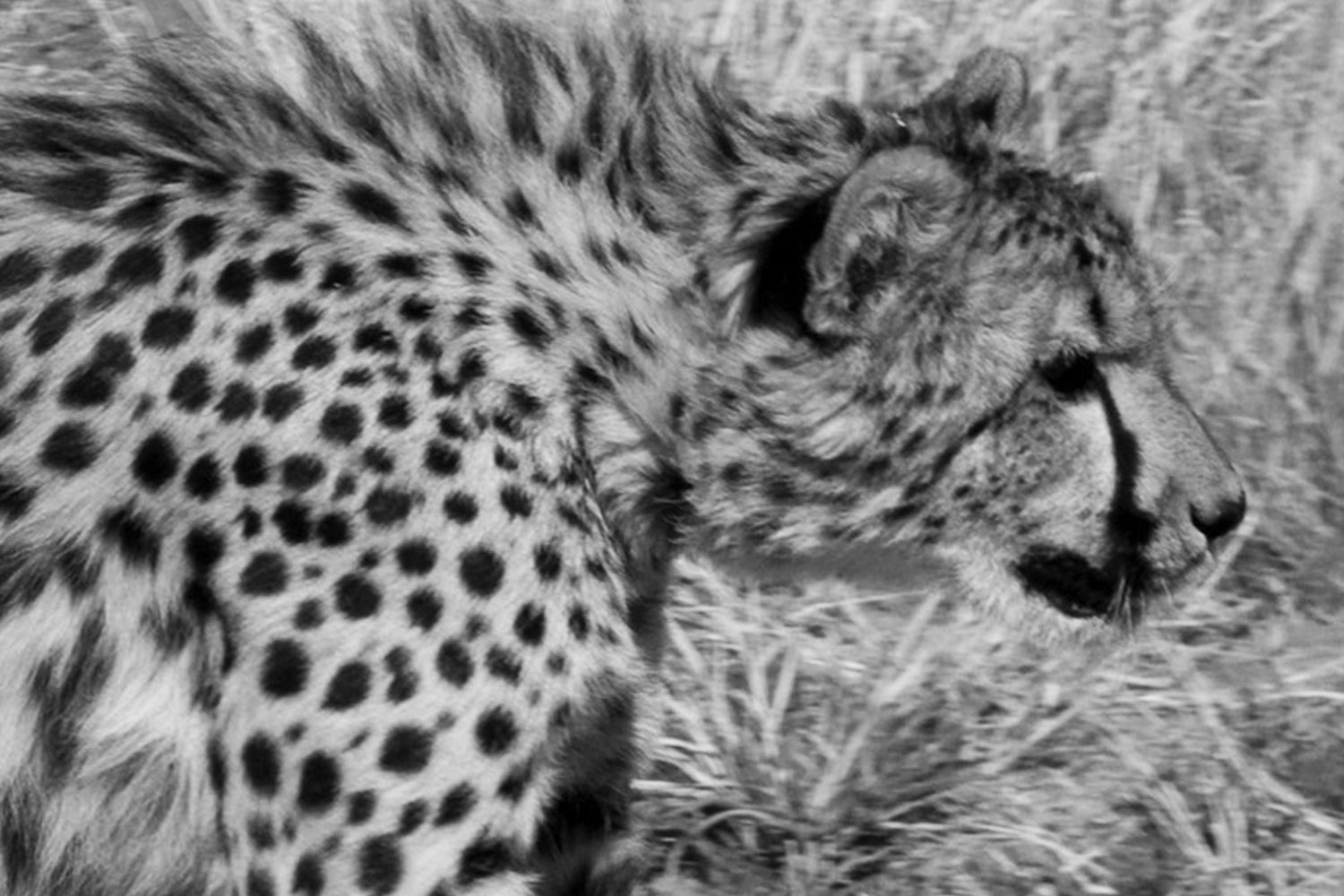Our Once in a Lifetime Experience!
-

- by Alexa Charbonneau and Frederique Plante May 28, 2023
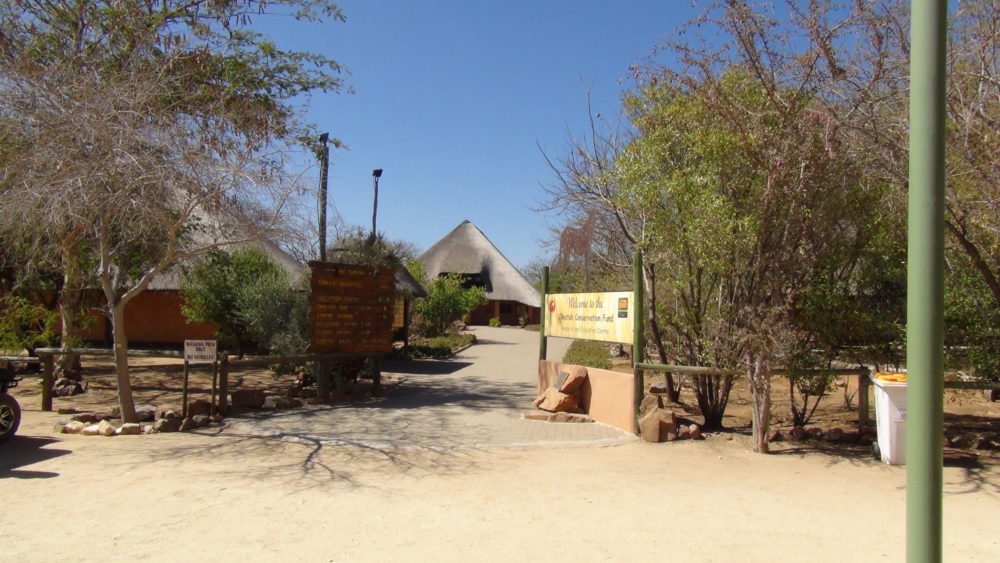
We are third year students in the Animal Health Technology Program at Vanier College in Montreal, Quebec, Canada. We completed our first internship at CCF Namibia in March and April of this year. We had the great privilege to work with the veterinary team. At the time, CCF had about thirty dogs, five hundred goats, twenty-four cheetahs, and five horses.
CCF taught us so much invaluable information. We spent most of our time in the vet clinic but also had the opportunity to work in other departments.
A Typical Day
We would go see the horses first thing in the morning. We would feed them, brush them, clean their hooves, remove ticks if any were found, applied fly spray, and took their temperature to monitor for African Horse Sickness. If they needed specific treatments for a small injury, we would also take care of it. Once that was all done, we would take them out for the day.
We would then go to the veterinary clinic and assist the veterinarian and technicians. We never knew what our days would consist of. Sometimes, different departments would come to get us to treat a sick animal, and other days we would do preventive medicine by performing random fecals on the goat herd, random blood draws, etc. Some days, we had some tasks assigned such as vaccinating the goat herd, deworming the herd, or performing vaginal cytologies on the female dogs to detect if they were in estrus. Every afternoon, we did “goat checks” which consists in walking around the herds looking for any signs of limping, diarrhea, nasal and/or ocular discharge. Most of the time, we would see limping goats who needed a thorn removed from their hooves or goats who had ticks between their digits in which case we applied tick grease. After our “goat checks,” we got the horses back in the stable and did the same tasks we do in the mornings.
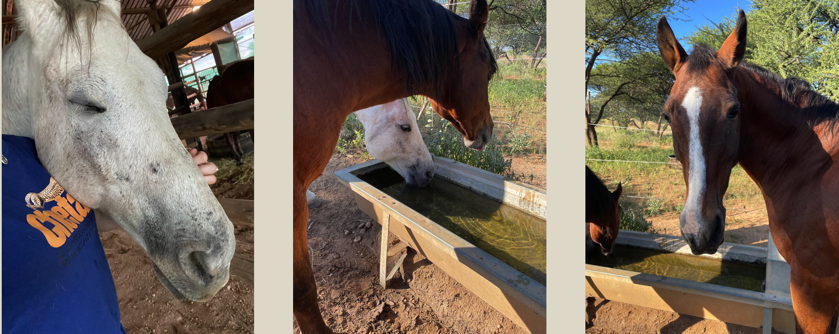
Livestock Guarding Dogs
For the dogs, we spent a lot of our time with them, giving them clean water, food and cleaning their runs. On a more veterinary side, we did vaginal cytologies on the dogs in heat every three days to evaluate where they were in their estrous cycle. By determining this, we could figure out who could be bred. We had no prior experience with this, so it was a good learning experience. We also spayed the two month old puppies destined to be a Livestock Guarding Dog. We also took blood from dogs ears to do blood smears and to check for parasites. We also performed a couple of dental cleaning procedures under general anesthesia on adult Anatolian shepherds.
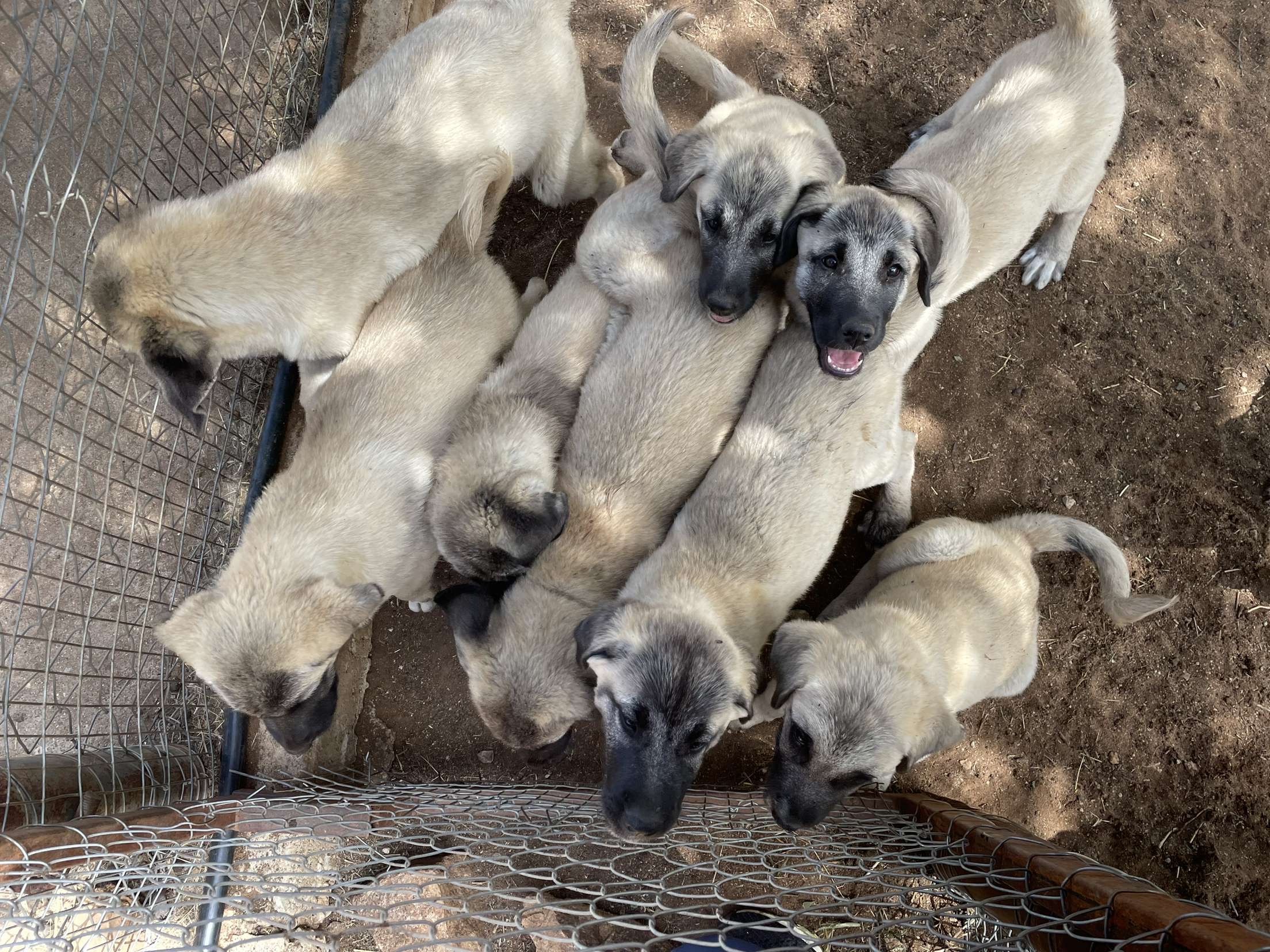
Goats and Sheeps
The goats and sheep were the species we worked with the most and, yet, had the least knowledge about, when we arrived to CCF. We learned so much about goat diseases and how they needed to be cared for on a daily basis. We went to see all three herds of goats and sheep twice a day to assess their health and check for signs of sickness, such as diarrhea, nasal and ocular discharge, and limping. Limping was one of the most common issues we saw in the goats daily and was usually as a result of ticks being implanted in their hooves (sometimes one, sometimes several), thorns being lodged in their hooves from walking in the bush all day, and other more serious diseases like foot rot. We also saw diarrhea commonly, so the goats were administered a probiotic treatment, which usually resolved it. While at CCF, we got the chance to see about ten goat kids being born, which was an incredible experience. We learned how to care for them after birth, especially one kid who needed to be bottle fed and wrapped in a blanket because he was born too cold. We got to vaccinate and deworm all the herds of goats and sheep while we were there. We had never done this before but it was an excellent learning experience and a great teamwork exercise.
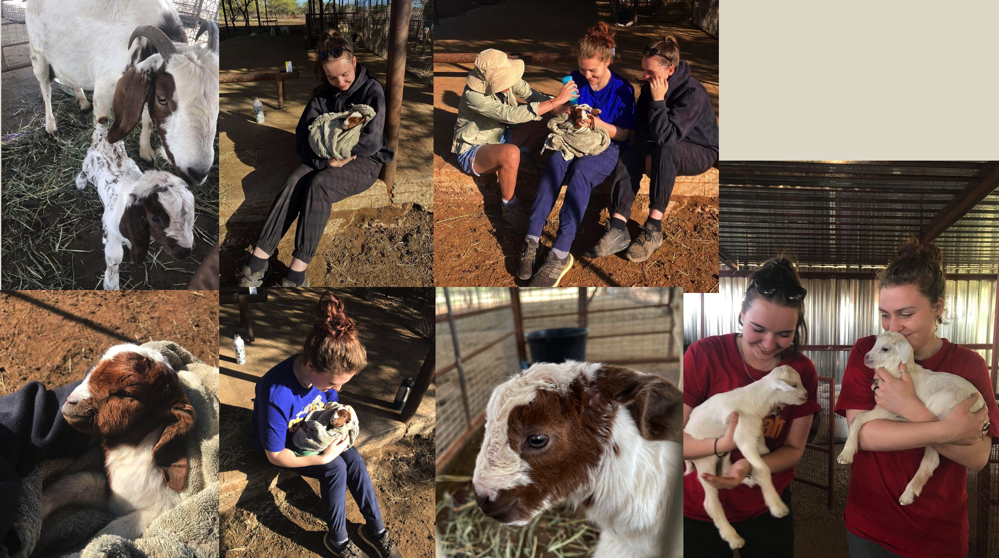
Helping Farmers
A couple of time a nearby farm reached out to the veterinary clinic about a sick animal. Once, we went to take x-rays on a calf who had a cast to see if his bone was healing well and a dog with stiffness in her hind legs. Another time, we went on a farm to check on a goat who was very underweight and quite unwell due to a parasitic infection. We tried to administer subcutaneous and intravenous fluids and nutrients on-site, but were unsuccessful so we took the goat back to CCF for antibiotic treatment. Within days, the goat was better and was sent back to his farm.
Cheetahs
As for the cheetahs, we did not work very closely with them as they are wild animals, and we try to minimize our contact with them. We got to take part in daily cheetah feeding and, at times, got the cheetahs to run after the truck for food so they could get their exercise.
On a veterinary side, we got to assist in drawing blood from the cheetahs by holding their tails. The cheetahs are trained with positive reinforcement to come close to the fence while they are fed chopped meat. They willingly stay there while we draw blood from their tail, and they are free to leave anytime they want. This process makes the blood draw a positive experience for them. We also got to assist in the administration of subcutaneous fluids.
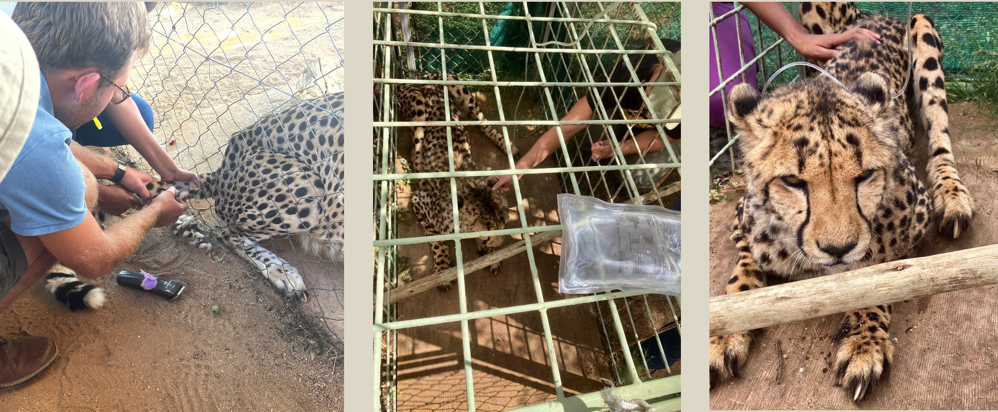
During my time at CCF, we got the chance to expand on theoretical and practical knowledge that we had learned in school but applied on species that we were not familiar to us. We also learned new techniques and methods which we did not learned in Canada, but will be quite useful. For instance, we learned that peripheral blood smears are useful for detecting parasites.
When it comes to cheetah conservation, it is important for Canadians to know that only about 7500 cheetahs remain in the wild. 90% of the cheetahs in Namibia lives close to farms, and hence are vulnerable to human-wildlife conflict. CCF has implemented a number of programs to support farmers including the Livestock Guarding Dog program to keep cheetahs away and prevent unnecessary killing.
If the cheetah goes extinct, their ecosystem would suffer a great imbalance, being that they are an apex predators
We want to say a very special thank you to CCF staff who, every day, taught us so much.
Stay up-to-date...
with the activities of Cheetah Conservation Fund in Canada, Namibia and Somaliland. We send semi-annual newsletters and info about special events and initiatives. We do not share your email address with any other organization.
Related Reading
-
July 29, 2024
From Classroom to Savanna – Our Journey at CCF -
June 12, 2024
Our journey at CCF: Conservation and Collaboration

